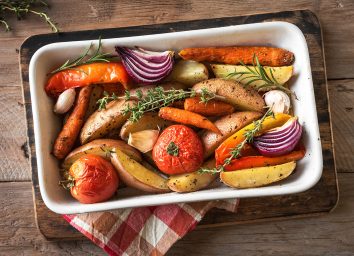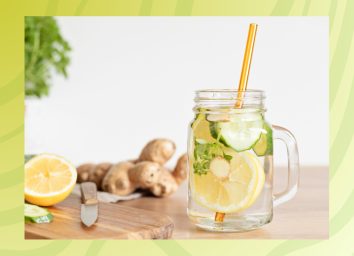6 Fruits That Reduce Inflammation and Slow Aging
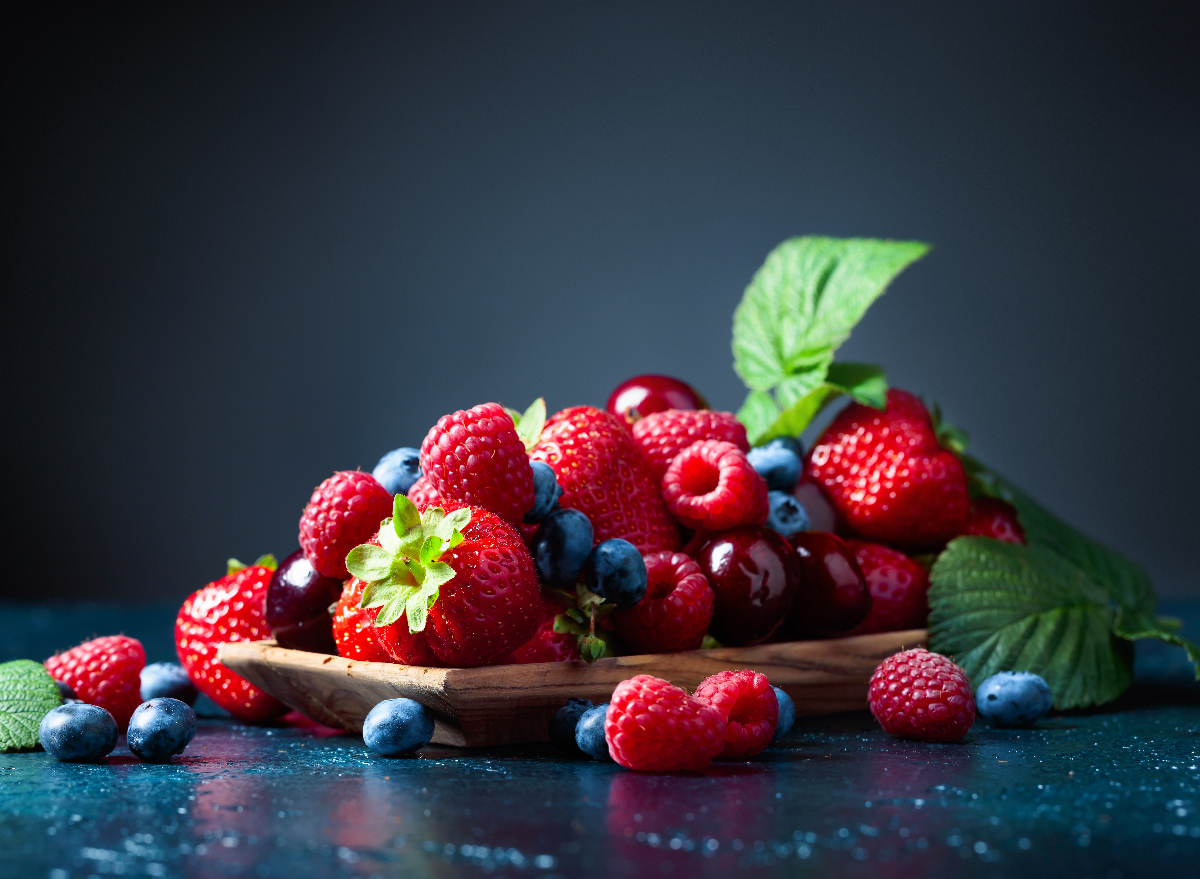
Many of the most common diseases that exist today—diabetes, heart disease, cancer, Alzheimer's, and arthritis—have all been linked to chronic inflammation. The good news is, there are lots of ways to fight inflammation and slow aging in the process—and one of those solutions just happens to lie in your refrigerator's crisper drawers. If you guessed that we're talking about fruits and veggies, you'd be right. But of course, some are more beneficial than others.
According to Annelie Vogt von Heselholt, RD, founder of Dietitian Doc, the power of fruit lies in its antioxidants—molecules that neutralize harmful free radicals in your body.
But since not all fruits have the same type of antioxidants, it's important to have some variety in your diet, says Kayley Myers, RD.
So, which fruits top the list when it comes to reducing inflammation and slowing aging? Read on for some expert-approved choices.
Blueberries
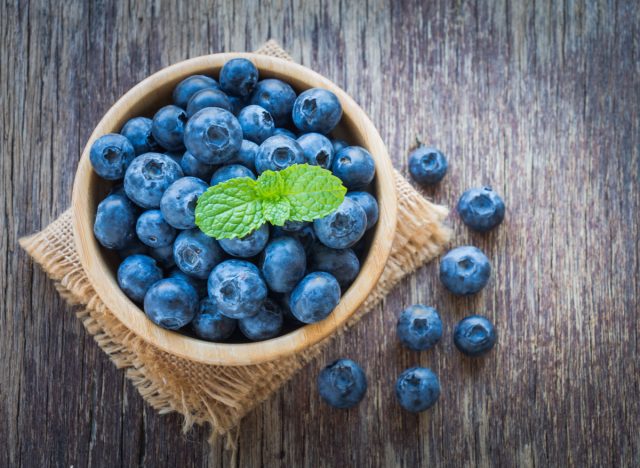
Research has shown that blueberries have the highest level of antioxidants among all popular fruits and veggies. That should explain why one 2019 study in Nutrients found blueberries reduced knee pain and stiffness in people with arthritis—a condition marked by joint inflammation.
"Some research indicates that antioxidants in blueberries may help reduce age-related cognitive decline," says Myers. "However, the brain-protecting qualities of blueberries have primarily been seen in animal studies, so more research is needed."
Vogt von Heselholt points out that one cup of blueberries provides 487 milligrams of anthocyanins.
"Anthocyanins can help reduce the oxidative stress and inflammation that causes premature aging, reduced brain function, heart disease, and cancer," she says. "Specifically, they have a probiotic-like effect on the gut that can help reduce inflammation and prevent colon cancer. Anthocyanins can also help the body become more sensitive to insulin and more effectively use glucose, both of which can help prevent diabetes." She also notes that wild blueberries are often higher in antioxidants than commercially grown blueberries.
Grapefruit
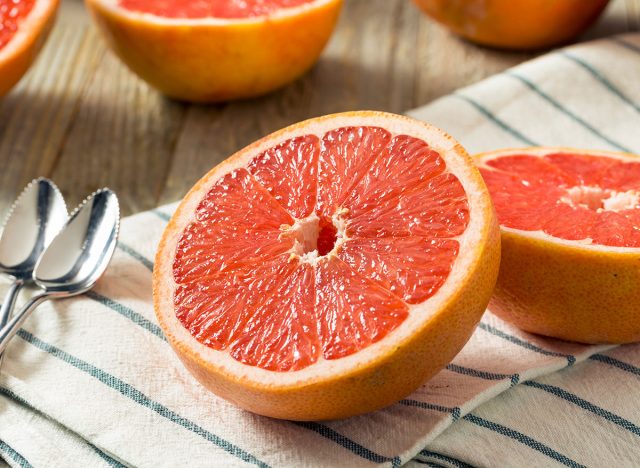
Whether you eat half at breakfast, toss it into your afternoon smoothie, or enjoy it brûléed for dessert, this citrus fruit is chock full of inflammation-fighting nutrients.
For one, it's super high in vitamin C, with 70% of your daily value in just one serving.
"Vitamin C is also an essential vitamin in the body's production of collagen," says Juliana Tamayo, RDN, an editor for Fitness Clone. "When you eat vitamin C-rich foods, you give your body a boost in collagen production, which helps reduce the risk for joint problems, while preventing skin aging. Also, grapefruit is high in lycopene, which is a known antioxidant able to prevent certain types of cancer."
Strawberries
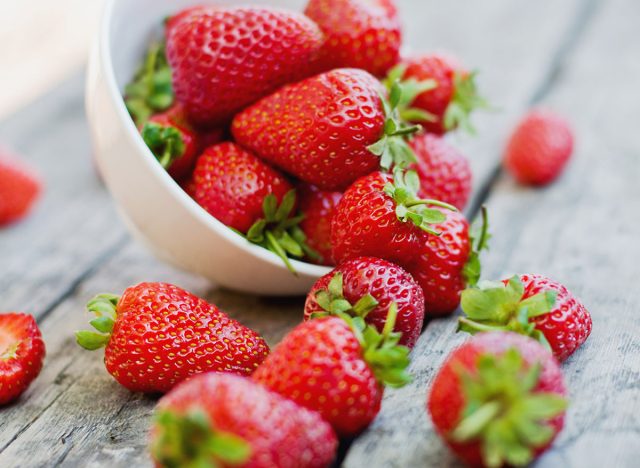
Strawberries are another vitamin C powerhouse. But that's not all.
"Strawberries are also high in fiber and potassium, promoting heart and gut health," says Kimberly Duffy, RDN. "They can boost immune function and increase HDL or 'good cholesterol.'"
A 2006 study in The American Journal of Clinical Nutrition also showed that they have one of the highest antioxidant levels per serving of any food.
Pomegranates
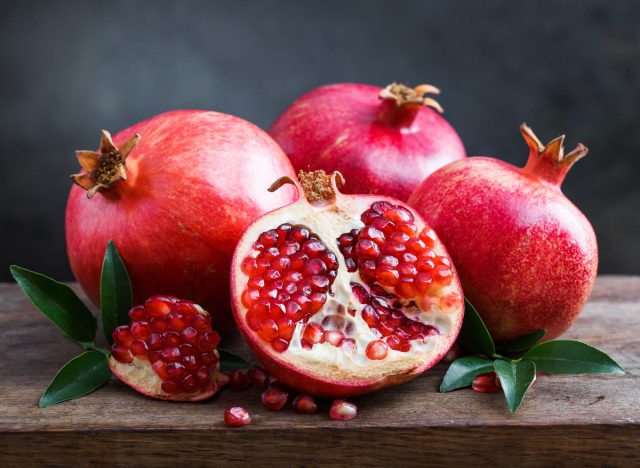
"The antioxidant qualities of pomegranate juice are typically even higher than those in red wine and green tea," says Myers. "This fruit contains special compounds like punicalagin, ellagic acid, anthocyanins, quercetin, and catechins that can help to lower inflammation and prevent cardiovascular disease."
A 2017 study in Molecules suggested that pomegranates may have anti-cancer properties. Meanwhile, another 2017 study in Nutrients found that pomegranate juice may have therapeutic potential for treating a wide variety of chronic inflammatory diseases like inflammatory bowel disease, rheumatoid arthritis, and metabolic and cardiovascular disorders.
Tart cherries
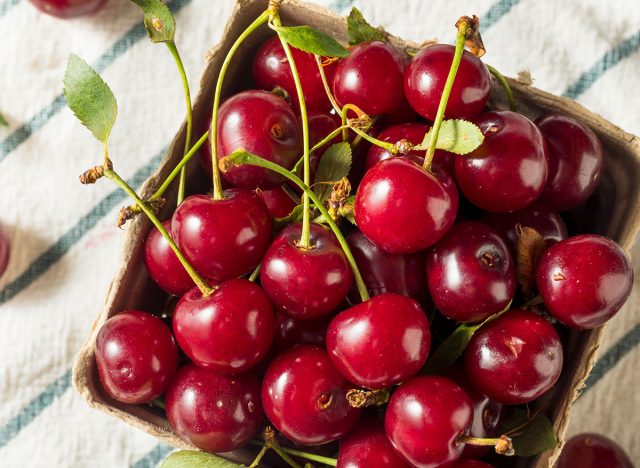
"Tart cherries contain several polyphenols that can help fight inflammation, including quercetin, cyanidin, and melatonin," says Myers. "Because inflammation can contribute to chronic diseases, such as high blood pressure and insulin resistance, eating tart cherries or tart cherry juice concentrate may help lower your risk."
In fact, a 2021 study in Ageing Research Reviews showed evidence that supports a link between tart cherry intake and reduced risk of inflammatory disease.
Raspberries
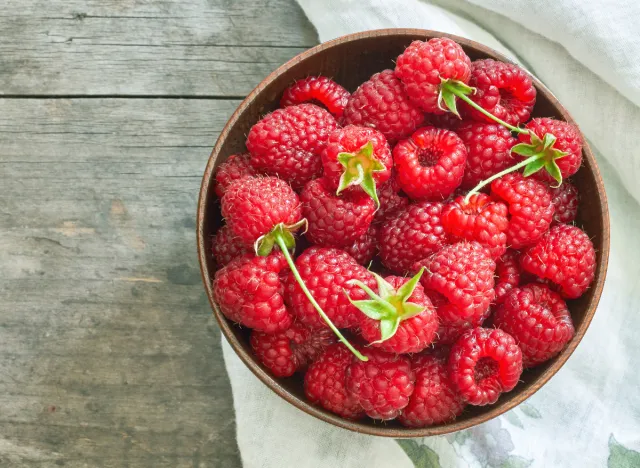
Not only are raspberries super low in sugar and high in fiber, but they also happen to be another excellent source of antioxidants like vitamin C, quercetin, and ellagic acid.
"Raspberries contain a mineral called manganese which can help with blood sugar regulation and promotes healthy skin and bones," adds Duffy. "Plus, raspberries are also a good source of potassium, which is good for heart health and lowering blood pressure."


